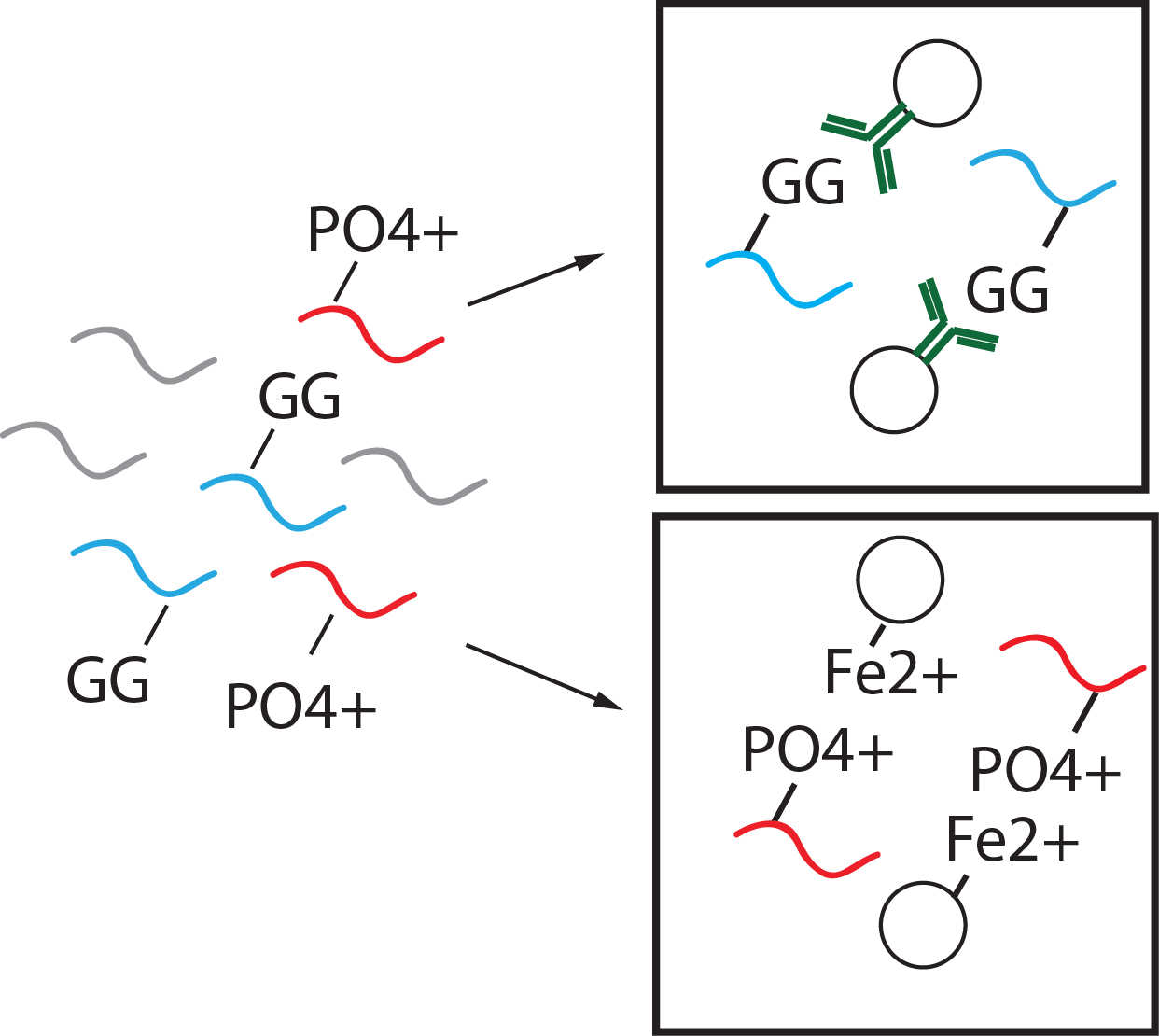 Post-translational modifications (PTMs) are critical for regulating nearly all biological processes. PTMs can regulate a system in a very rapid manner, compared to gene expression changes that take time to affect change in a biological system. They are also frequently dysregulated in human disease: Many cancers are driven by aberrant PTM signaling that promotes cellular growth in an unhealthy manner. Pathogens frequently usurp and disrupt host cellular PTM machinery in order to silence innate immune responses and create an environment favorable for replication.
Post-translational modifications (PTMs) are critical for regulating nearly all biological processes. PTMs can regulate a system in a very rapid manner, compared to gene expression changes that take time to affect change in a biological system. They are also frequently dysregulated in human disease: Many cancers are driven by aberrant PTM signaling that promotes cellular growth in an unhealthy manner. Pathogens frequently usurp and disrupt host cellular PTM machinery in order to silence innate immune responses and create an environment favorable for replication.
Our lab uses mass spectrometry-based proteomics approaches to study PTMs in a comprehensive, unbiased manner. We have developed platforms for proteome-wide quantification of changes in many PTMs. Phosphorylation and ubiquitylation are the most commonly characterized PTMs, as robust enrichment approaches for these modification. Less common are lysine acetylation, or phosphotyrosine.
